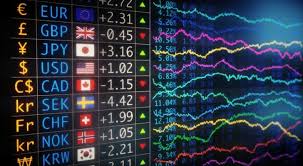
Forex trading can be an exciting and lucrative career path, but it also requires a solid understanding of market mechanics and strategies. For those interested in diving into the world of forex, it’s important to start with a strong foundation. This article will guide you through the essential aspects of forex trading and provide insights to help you succeed in this dynamic market. To get started, you may want to consider platforms like learn forex trading Trading Broker ZA that can assist you in your trading journey.
What is Forex Trading?
Forex trading, or foreign exchange trading, involves the buying and selling of currencies in the global market. As one of the largest financial markets in the world, forex trading is conducted 24 hours a day, five days a week. Participants in the market include banks, financial institutions, corporations, and individual traders. The primary goal is to profit from changes in currency values, which can be affected by various factors such as economic indicators, geopolitical events, and more.
Understanding Currency Pairs
In forex trading, currencies are traded in pairs, such as EUR/USD or GBP/JPY. The first currency in the pair is known as the base currency, while the second is the quote currency. For instance, if you buy the EUR/USD pair, you are purchasing euros and selling US dollars. The exchange rate indicates how much of the quote currency you need to spend to buy one unit of the base currency. Understanding how currency pairs work is crucial for making informed trading decisions.
The Basics of Trading
Before you start trading, it’s important to learn some fundamental concepts:
1. **Pips**: The smallest price change in a currency pair. For most pairs, a pip is typically the fourth decimal place (0.0001), while for pairs involving the Japanese yen, it’s the second decimal place (0.01).
2. **Leverage**: This allows traders to control larger positions with a smaller amount of capital. While leverage can amplify profits, it also increases the risk of losses.
3. **Spread**: The difference between the bid and ask price. It’s the cost of executing a trade and can vary depending on market conditions and broker.
4. **Margin**: The amount of money required to open a trading position. It can be viewed as a good faith deposit.
Developing a Trading Strategy
One of the keys to successful forex trading is developing a solid trading strategy. Here are some popular approaches:

1. **Technical Analysis**: This involves analyzing price charts and using indicators to predict future price movements. Traders often look for patterns and trends to inform their decisions.
2. **Fundamental Analysis**: This approach focuses on analyzing economic news and data, such as interest rates, inflation, and GDP growth, to gauge currency strength.
3. **Swing Trading**: Swing traders aim to capture short to medium-term price movements, holding positions from a few days to several weeks.
4. **Day Trading**: Day traders buy and sell within the same trading day, seeking to profit from intraday price movements. This approach requires quick decision-making and a thorough understanding of market dynamics.
5. **Position Trading**: This long-term strategy involves holding a trading position for weeks or months. Traders using this method typically rely on fundamental analysis.
Risk Management Techniques
Effective risk management is crucial in forex trading. Here are some strategies to help protect your capital:
1. **Set Stop-Loss Orders**: A stop-loss order automatically closes your trade at a specified price, limiting potential losses. This is a vital tool for managing risk.
2. **Diversify Your Portfolio**: Avoid putting all your funds into a single trade or currency pair. Diversification helps reduce risk.
3. **Only Risk a Small Percentage of Your Capital**: Many experienced traders recommend risking no more than 1-2% of your trading capital on any single trade.
4. **Keep Emotions in Check**: Emotional trading can lead to impulsive decisions. Stick to your trading plan and maintain discipline.
Choosing a Forex Broker
Selecting the right forex broker is an essential step for anyone looking to enter the market. Consider the following factors when making your choice:
1. **Regulation**: Ensure that the broker is regulated by a reputable authority. This provides a level of protection for your funds.

2. **Trading Platforms**: Look for a broker that offers user-friendly trading platforms with the tools and features you need.
3. **Fees and Spreads**: Compare the fees, spreads, and commissions among different brokers to find one that suits your trading style.
4. **Customer Service**: Good customer support can be invaluable when you need assistance or have questions.
Tools and Resources for Forex Trading
In addition to the platforms provided by brokers, various tools and resources can aid in your trading journey:
1. **Forex Calendars**: Economic calendars keep track of important economic events and news that can impact currency prices.
2. **Charting Software**: Advanced charting tools can help you conduct technical analysis effectively.
3. **Online Communities**: Join forums and social media groups where traders share insights, strategies, and experiences.
4. **Educational Content**: Many brokers and websites offer tutorials, webinars, and eBooks to help you learn more about forex trading.
Continuous Learning and Practice
Forex trading is a skill that takes time to master. Continuous learning is vital for staying ahead in the market. Open a demo account to practice trading without risking real money. This will allow you to apply what you’ve learned and refine your strategy.
As you gain experience, consider reviewing your trades to identify strengths and weaknesses. Journaling your trades can provide valuable insights into your decision-making process.
Conclusion
Learning forex trading can be a rewarding endeavor, but it requires dedication and discipline. Start by understanding the basics, develop your trading strategy, and never underestimate the importance of risk management. With the right approach and the willingness to learn, you can navigate the forex market with confidence and potentially achieve your financial goals. Remember, successful trading is a marathon, not a sprint, so be patient and consistent in your efforts.
